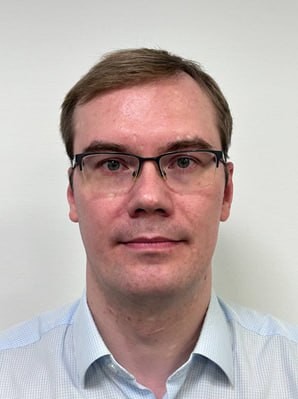Keynote speakers
Vasiliy Stanislavovich Usatyuk, Head of the Information Theory Group at T8 Ltd., Moscow, researcher at South-West State University, candidate of sciences
Graph‑Based Compressed Sensing Meets Deep Neural Network Feature Embedding's
Vasiliy Stanislavovich Usatyuk is the Head of the Information Theory Group at T8 Ltd. in Moscow and a researcher at South-West State University. He works in the fields of information theory, digital signal processing, and machine learning. His research focuses on developing algorithms and CPU, GPU, QPU, FPGA and ASIC oriented architectures for deep neural networks, forward error correction, and advanced solutions for quantum computation, sensing, and communication systems. He has previously held a senior research engineer position at Huawei and led the Parallel Computation and Information Security Laboratory at Bratsk State University. Vasiliy is the author of more than 45 international patents and has contributed to industry standards in post-quantum cryptography and 5G error correction

Vladimir Andreevich Volokhov, Senior researcher at STC-innovations Ltd., Saint Petersburg, associate professor of ITMO University, candidate of sciences, associate professor
Current Trends in the Development of Voice Biometrics
The report discusses the pipeline of a modern voice biometrics system. Particular attention is paid to the description of the block for computing of speaker embeddings, which is based on deep neural network architectures such as CNN and Transformers. Some information is provided on training these neural networks in relation to the speaker recognition task, as well as estimates of the number of parameters used and the time complexity, which make it possible to understand the practical applicability of such algorithms. The quality assessment of modern speaker recognition systems on standard benchmarks and promising directions for the development of voice biometrics are considered
Vladimir Andreevich Volokhov– senior researcher at STC-innovations Ltd., Saint Petersburg, candidate of sciences, associate professor of ITMO University. He works in the field of digital speech signal processing: speaker and spoken language recognition, speaker and language diarization. He is the head of the Speaker Recognition course at ITMO University and is a participant in international conferences such as SPECOM, Odyssey, INTERSPEECH and ICASSP.